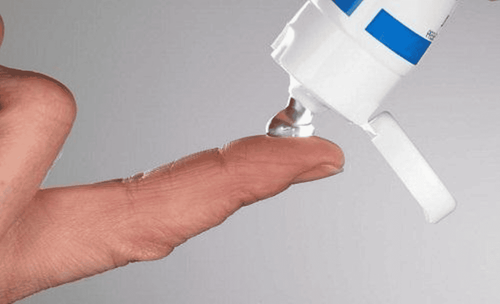This is an automatically translated article.
Tanacinadvin belongs to the group of pain relievers, antipyretics, non-steroidal anti-inflammatory drugs used in the treatment of mild to moderate pain and inflammation. What are the uses of Tanacinadvin?
1. What are the effects of Tanacinadvin?
What is Tanacinadvin? Tanacinadvin drug belongs to the group of non-steroidal anti-inflammatory analgesics, antipyretics, and anti-inflammatory drugs, which are made in the form of film-coated tablets with the main ingredients including: Ibuprofen 200mg Phenylephrine hydrochloride 10mg Tanacinadvin has analgesic, antipyretic and anti-inflammatory effects in mild to moderate. Dosage for adults is 200-400mg, taken 2-3 times a day.
2. Indications and contraindications
2.1 Indications for use of Tanacinadvin Tanacinadvin is indicated in mild to moderate pain relief and anti-inflammatory conditions such as:
Headache Toothache Menstrual pain Joint pain Soft tissue pain in trauma Post-operative pain 2.2 Contraindications Tanacinadvin is contraindicated to use Tanacinadvin in the following cases:
Hypersensitivity to any component of the drug and aspirin or other NSAIDs. Progressive peptic ulceration Liver failure, severe renal failure Asthma Bronchospasm Bleeding disorders Cardiovascular disease Colloidal disease Congestive heart failure Need to reduce circulatory volume due to diuretics or renal failure Patients on treatment with coumarin in the last 3 months of pregnancy
3. Undesirable effects when using the drug Tanacinadvin
Some unwanted effects that may be encountered when using Tanacinadvin include:
Fever Fatigue Abdominal bloating Nausea Vomiting Headache Dizziness Dizziness Restlessness Rash Urticaria Serious allergic reactions may appear present with symptoms such as rash, edema, difficulty breathing, fainting, ... In this case, it is necessary to immediately contact a medical facility near your home for timely treatment.
4. Some notes when using Tanacinadvin
Some notes in the process of taking Tanacinadvin include:
Inform your doctor about a history of hypersensitivity, allergy to Tanacinadvin or any other allergies. Tanacinadvin may contain ingredients that don't work and could cause an allergic reaction or other serious problems. You need to notify the drugs that you are using while taking Tanacinadvin including prescription and non-prescription drugs, preservatives, herbal and functional foods, foods. or dye, ... so that the doctor can understand. Tanacinadvin should be used with caution in the elderly because Tanacinadvin inhibits platelet aggregation and may prolong bleeding time. For pregnant women, do not use Tanacinadvin
5. Drug interactions
Drug interactions can decrease the effectiveness of Tanacinadvin, or increase the effect of unwanted effects. Certain medications should not be used at or around the time of treatment with Tanacinadvin. Also, in other cases, two different drugs can be used together even if they do interact. In this case the doctor needs to change the dose of the drug or take other precautions. Therefore, users should inform the doctor about the drugs and supplements you are using.
For the drug Tanacinadvin may increase the side effects of quinolone antibiotics on the central nervous system, increase the toxicity of methotrexate and digoxin, reduce the diuretic effect of furosemide and other diuretics. For other non-steroidal anti-inflammatory drugs may increase the risk of bleeding and peptic ulcer. Magnesium hydroxide may increase the initial absorption of tanacinadvin, but the addition of aluminum hydroxide does not have this effect.
6. Storage of Tanacinadvin
Normally, Tanacinadvin is stored at room temperature, away from direct sunlight and high temperature, in a humid place because it can metabolize the ingredients in the drug. Carefully read the instructions on the storage of the medicine on the package because each medicine will have different ways of storing it. Also, keep Tanacinadvin out of the reach of children and family pets. When the dose of medicine has expired or is damaged and cannot be used anymore, the user should dispose of the drug according to the correct procedure. Do not arbitrarily dispose of Tanacinadvin into the environment such as plumbing or toilet unless requested. Please consult your waste disposal company or pharmacist on how to safely dispose of Tanacinadvin to help protect the environment.
In summary, the drug Tanacinadvin is effective in pain relief, antipyretic, anti-inflammatory at mild to moderate levels. However, in the process of using the drug may encounter some undesirable effects that may occur. Therefore, if any unusual symptoms appear, immediately contact medical help for timely intervention.













